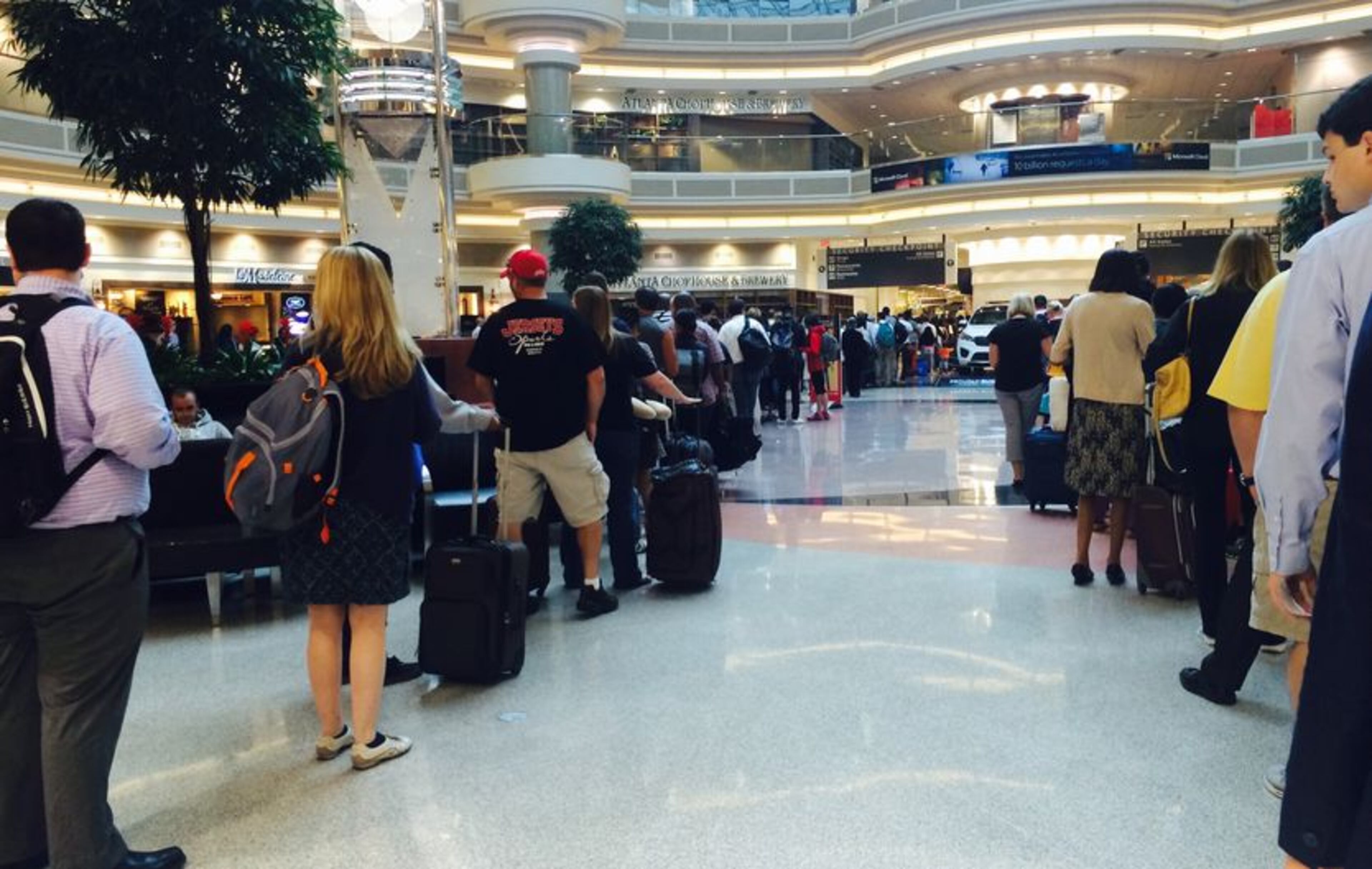Hartsfield-Jackson looks to multiple fixes for long security lines

To tackle the problem of long lines at security checkpoints, Hartsfield-Jackson International Airport will divert workers from passenger security screening to employee-only checkpoints and explore new technology -- in addition to getting more staff and canine units.
"Americans will not tolerate a one-hour wait as the norm.... but it is happening in Atlanta, and it is hurting our business," said Hartsfield-Jackson general manager Miguel Southwell. "We believe that the time it takes for airport security screening should be no longer than the time it takes for a routine doctor's visit and examination."
After a letter threatening to move toward privatizing security screening at Hartsfield-Jackson last month, Southwell said the Transportation Security Administration has responded with commitments to provide additional staffing and canine units and to put Atlanta “at the forefront” of experiments with new technology for security screening.
“We are so pleased,” Southwell said. “If the commitments that are shared with us are met, then we will move forward with the current process, having TSA manage it.”
The airport itself can make some changes to shorten lines, according to Southwell.
Some concessions workers and others have been going through passenger screening checkpoints to get to work, and Southwell said the airport plans to redirect those workers to employee-only screening lanes set up last year. That will help free up capacity for passengers, he said.
“We believe strongly in effective security, but we don’t believe that effective security screening is mutually exclusive of good customer service."
In the long term, however, technology will be needed to help screen passengers more quickly instead of just adding more workers to screen travelers, Southwell said.
“We all agree that the answer is not to keep adding people and adding people,” he said. “It simply is not financially viable for the government.”
Using a system like the automated passport kiosks at U.S. Customs and Border Protection to scan passenger IDs could help, but that will also depend on plans to put chips into driver licenses, Southwell said.
“We believe there’s just so much hope in introducing technology,” Southwell said. He said he thinks using technology for part of the screening process could shave 15 seconds off the process per passenger. “We believe that’s the only sustainable solution to the rapid increase in air travel to have security wait times at an acceptable level.”




